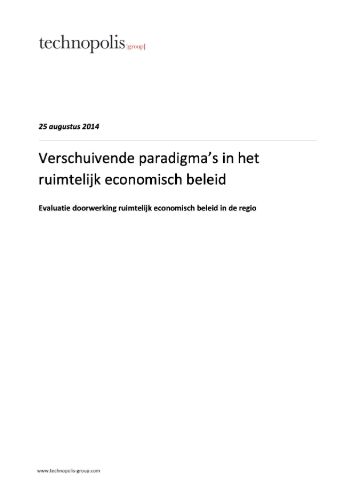Verschuivende paradigma’s in het ruimtelijk economisch beleid
Publication date: 12 August 2014 | Report language: NL
Het regionaal economisch beleid heeft in de afgelopen periode een tweetal paradigmashift ondergaan. De eerste verandering betreft de keuze voor sterke regio’s (pieken in de delta) in plaats van het ondersteunen van achterblijvende regio’s. De tweede verandering is het overdragen van verantwoordelijkheden in het regionaal economisch beleid naar de regio’s zelf in plaats van een meer centralistische aansturing. In deze evaluatie is Technopolis het effect nagegaan van deze twee veranderingen op regio’s en clusters. Dit is gedaan aan de hand van desk research, heel veel interviews en diverse focusgroepen.


